As a marketing technologist, I can tell you that, frankly, there are many too many marketing technology solutions out there. I’m sure you’ve seen that aesthetically challenged image that keeps getting busier and busier each year with all of the marketing and ad tech solutions. We’re in the middle of the MarTech cash grab.
I spend a lot of time playing around with these tools and separating the good from the bad. Specifically with regard to marketing analysis, there are number of great all-in-ones and point solutions that everyone is using like Searchmetrics, Ahrefs, Screaming Frog, et al. However, there are a number of solutions that we get a lot of value out of that I don’t hear talked about much in the online marketing echo chamber. I feel that some of these tools give us an unfair advantage to scale our approaches and do a lot of great work with our small team. So today, I just want to introduce you to some of these tools in hopes that you may find value in adding them to your workflow and toolbox.
Pitchbox
When I started doing link building in 2006, everything we did was tracked in Excel sheets. Then many of the non-tinfoil hat people moved to Google Docs due to its ImportXML features. At some point a lot of people with dev chops realized there’s a lot of things that can be automated and tracked to improve and scale outreach. As a practitioner that really spent the time to get to know my prospects, I’ve been a big fan of BuzzStream because of how conducive it is to living within workflows outside of its system, and I very much appreciate some of their latest features (hello BuzzStream Discovery).
As a manager, I’ve found a lot of value in using Pitchbox due to its process-driven approach and its UI that keeps you within the system and focused on your specific tasks.
Pitchbox is the process-driven outreach tool. It has features that let you identify prospects in a variety of ways based on queries. You can import a list of prospects and it pulls many features and information about these sites and their authors. The tool also allows you to maintain a number of email templates with complex mail merge fields. Best of all, the system allows you to review prospects without even leaving it and provides analytics to show the activity of your team.

I love how Pitchbox helps inform strategy based on its prospecting. I also love that it makes it easy to provide complete transparency to our clients regarding our outreach efforts and, more importantly, it allows for a separation of concerns. The reality is that someone who is good at finding contacts, and knowing what a good link is, is not always someone who is good at outreach. Think about it, there are definitely SEO people that you wouldn’t want speaking to people without prior approval in real life or otherwise.
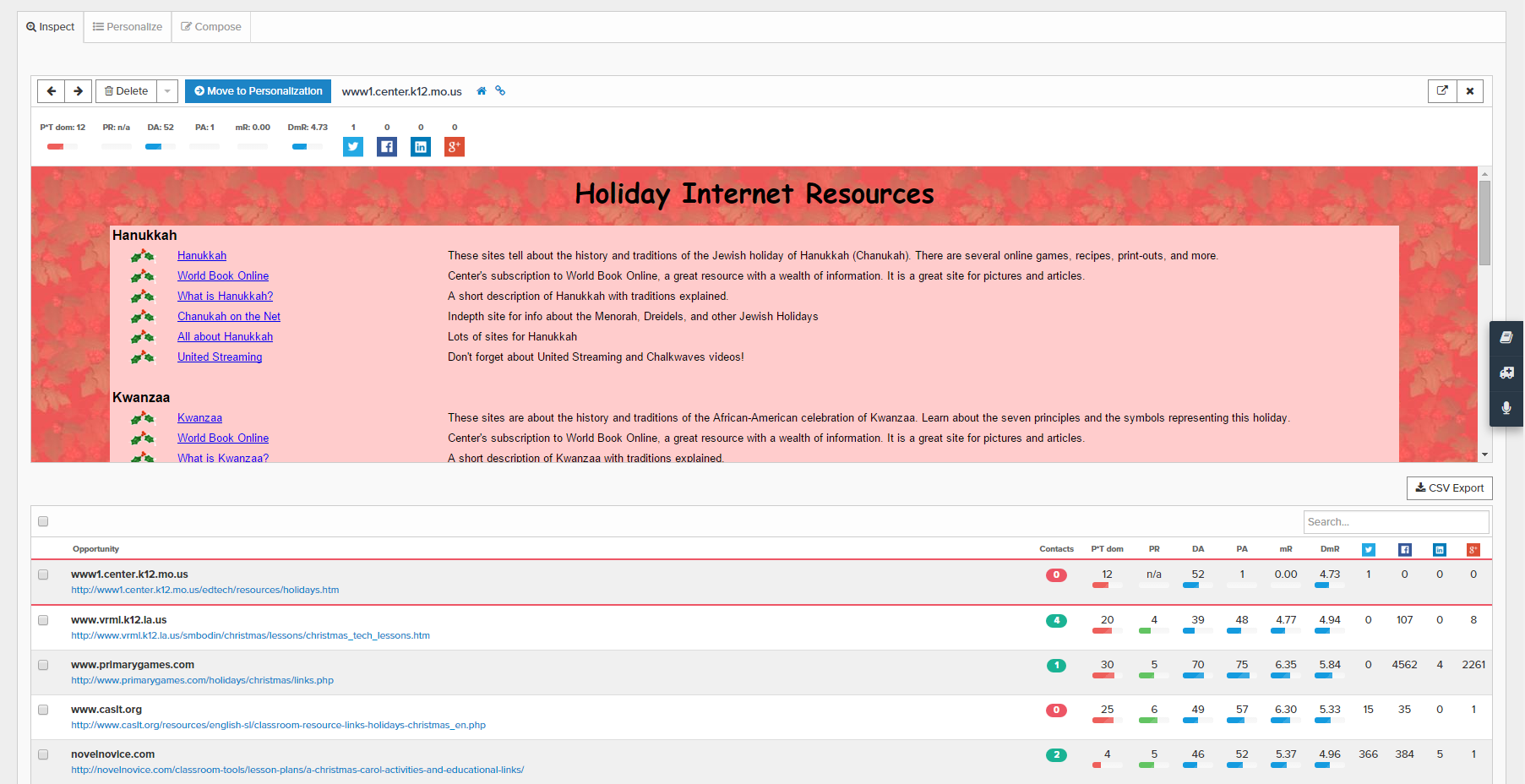
We can specify a user that just reviews link opportunities, and we can specify a user that just looks for features and data about the writer and their site and article to fill in the details for the mail merge fields in the emails. While I have historically been against form letters, I recognize that in order to develop predictable results across a larger team, we need to use very tailored form letters and Pitchbox allows for the best of both universes. Also, you have the ability to approve what’s going out a number of times before the emails are sent.
Judge for yourself though, Jon Cooper wrote an epic post comparing all of the available solutions for managing outreach. He brings up great points about all of the solutions, but I still consider Pitchbox the go-to for my current use case.
CognitiveSEO
I appreciate innovation, and I respect tool companies that are able to maintain a high quality of output that continues to shift what we can do as marketers. CognitiveSEO is one of those companies that continually release features that are very relevant to the changing landscape of Organic Search. They were one of the first tools to really capitalize on the changes in lieu of Penguin and prepare actionable tools that allow you to get to the bottom of issues in your link profile.
CognitiveSEO is positioned as an all-in-one providing rank reporting, penalty analysis, link reporting, and quantitative content analysis. For our purposes, we primarily leverage it for its link analysis features.
A long time ago, I built a tool that crawled all of my links from all the available link indices to collect data and segment. What I love about Cognitive, is that they’ve taken the same ideas and built them to a point well beyond my imagination. One of my favorite features is the force-directed visualization of the link profile. It allows you to visually highlight the nofollow vs. dofollow links, unnatural vs. natural, and also isolate links using search. Visualizations like this make it a lot easier for clients to understand what’s at play.

I also really love their spam classification system. It’s driven by human input in that it requires the user to classify anchor text first and then run the spam classification algorithm. Once that’s done you get a detailed report of what they algorithmically determine to be spam links. While the human classification process can be very time-intensive, there is typically a very high payoff and you definitely shave several hours off of reviewing every link by hand.
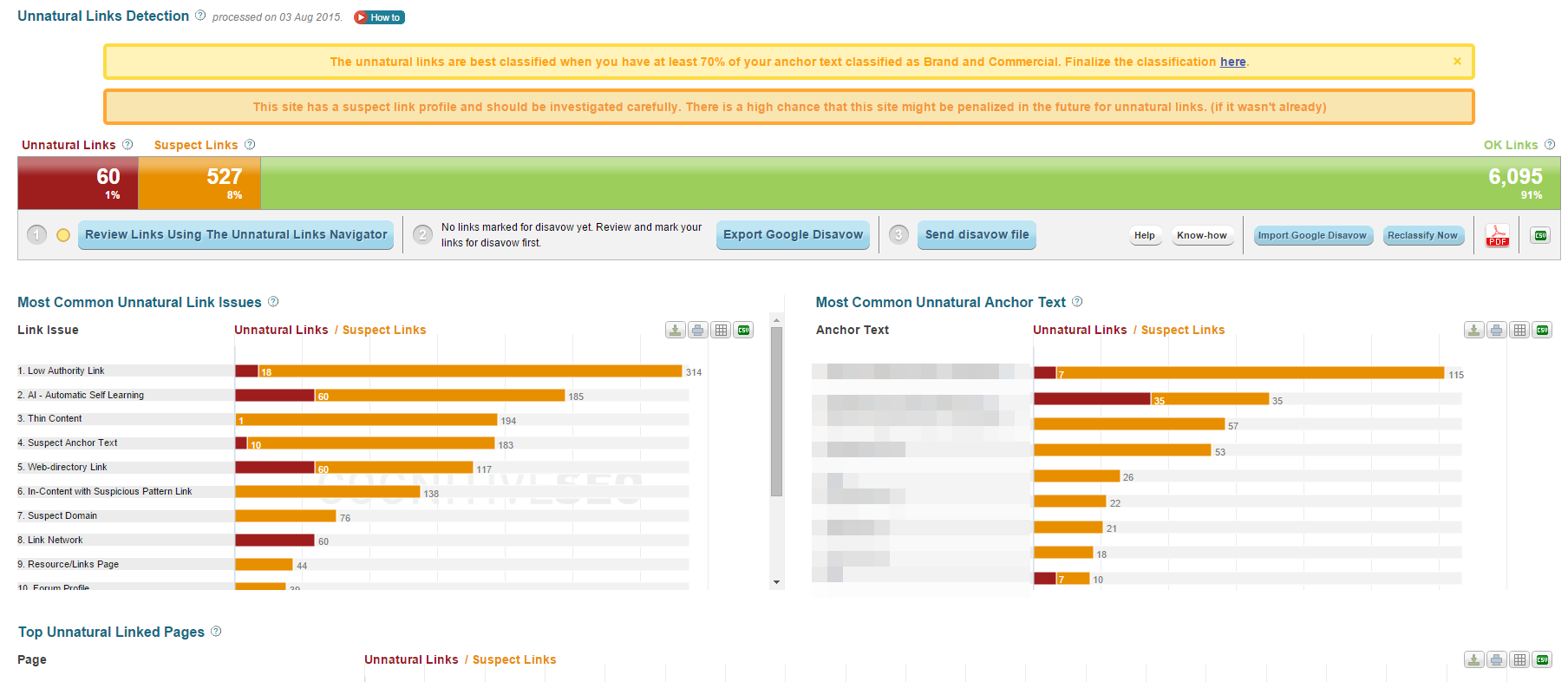
Postman
Again, on the thread of innovation, I get excited due to the rate at which new APIs are popping up. I frequently click around on ProgrammableWeb to see what new datasets are available. What I don’t have time for is fiddling with libraries or reconciling code against outdated API documentation versus how things actually work. So Postman is a great Chrome Extension for me to play with an API, see what types of data it will return, and how I can work it into something else we’ve built. It’s a great tool for non-coders to get insights on APIs to better communicate with developers about what data they want to use.
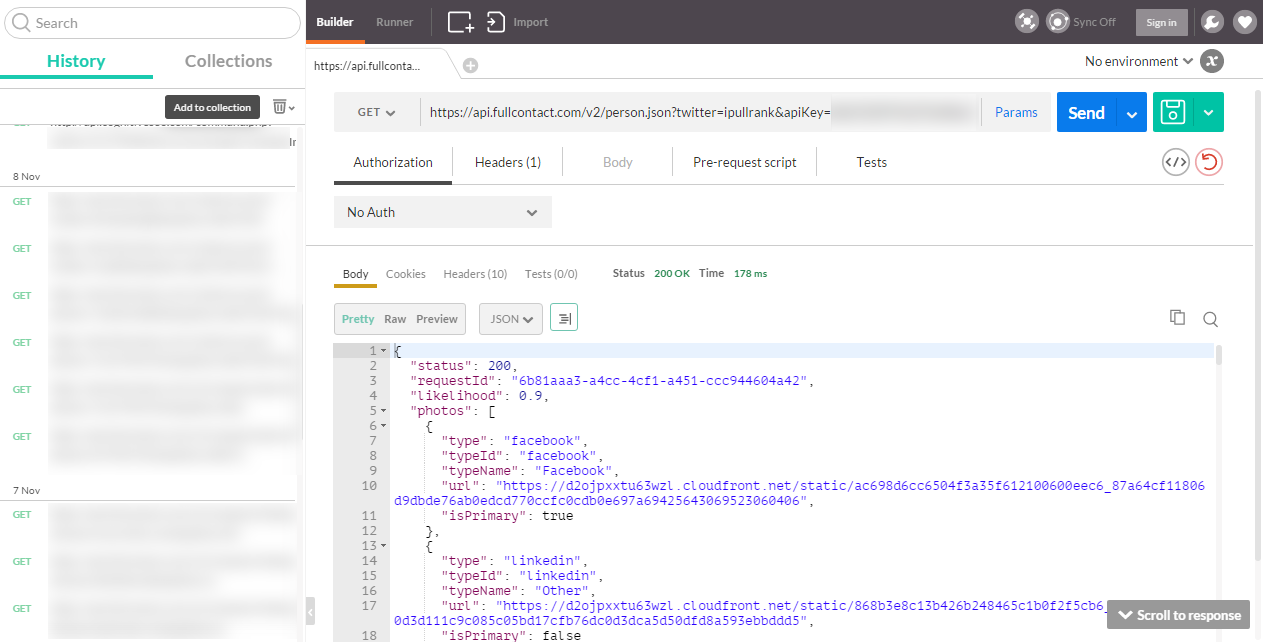
I love the fact that it allows me to quickly prototype an idea, understand the idiosyncrasies of the API’s responses, and develop functional requirements.
Orange
I think it’s funny that you can put the word “science” after anything and it sounds way more interesting than it actually is. Think about it; Computer Science. Marketing Science. And of course, Data Science. That being said, I still haven’t gotten around to deep fluency in Python or R, so Orange is an incredibly helpful tool for me to use in data mining. You can visually set up your analysis, set the options, and let it rip. Of course, you need an understanding of statistics to begin with, but once you’ve got that, there’s no coding involved. Orange is a data mining tool that for Windows, Linux, and MacOS that allows you to visually set up data analysis. Effectively, it’s a GUI for data science tasks in Python.
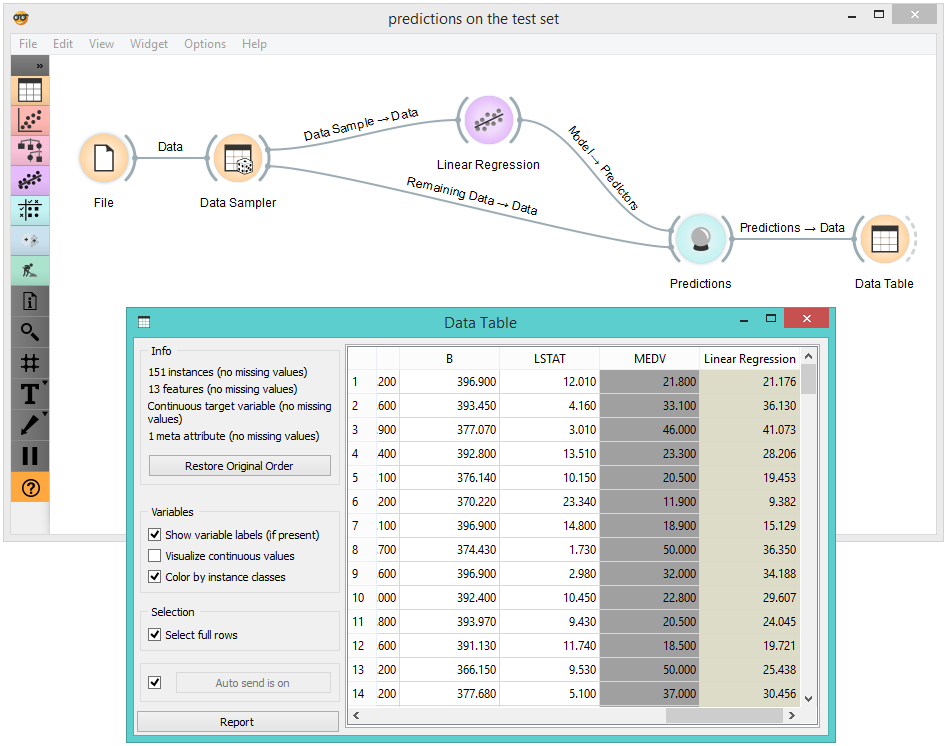
I love it because complicated computations are drag and drop. You can drag in your dataset, drag in linear regression and the method of visualization, and voila! It’s that simple to get a result, although it’s certainly not that simple to interpret and ensure you get the right results. As a data miner, I find it incredibly valuable for running models and digging into data.
nTopic
There’s been a lot of talk in recent years about topic modeling, SEO entities, and the usage of co-relevant or co-occurring terms, but I find it hard to believe many people are truly putting these ideas into practice. Virante on the other hand has done the research and built an otherwise ugly and heuristic-defying tool called nTopic to support the practice.
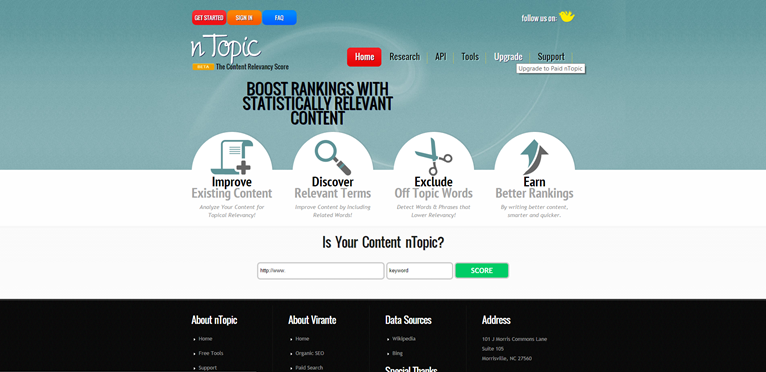
Simply, nTopic identifies the keywords your content should feature to be more relevant when considered for ranking for your target keywords. For example, taking the first page of our magnificent GTM Guide, nTopic tells me that while the page is 99.87% for the keyword “google tag manager” there are some words to consider when editing the copy to have the page perform better.
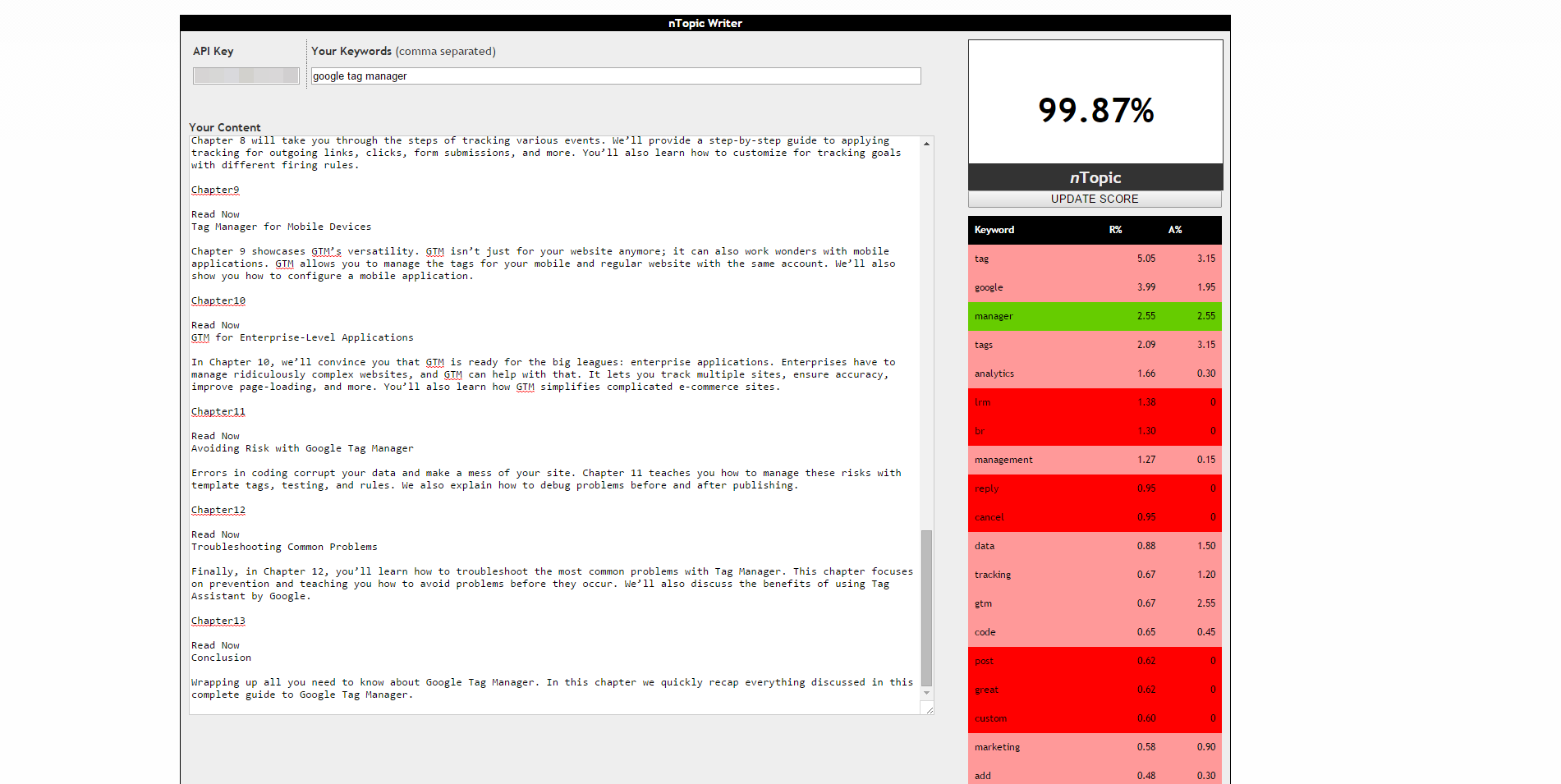
I love it because, as opposed to Searchmetrics’ version of the tool, I don’t need to set up a campaign to access the analysis. It’s easy to do it on an ad hoc basis.
They also have plugins for WordPress and Chrome that make it easy for these optimizations to happen within a writer’s normal workflow.
Keyword Studio
Our approach to keyword research is perhaps one of the most thoughtful, audience-driven, time-consuming, and, most importantly, actionable methodologies available. As an agency, time comes at a premium though so it’s up to us to stay on top of ways to automate where possible to achieve quality and scale. The most time-intensive part of the process is the segmentation of keywords into categories, personas, and need states.
While any tool for the latter two would require machine learning, Keyword Studio leverages a synonymy engine to greatly improve the speed of categorization. It’s the only true all-in-one keyword research tool in that it pulls keyword opportunities, rankings, search volumes, and CPCs. Basically, it’s what Google’s Keyword Tool would be if they supported Organic the same way they support Paid Search.
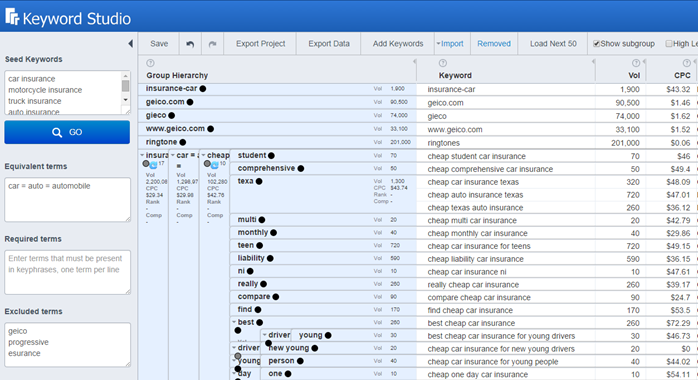
That’s All Folks
There you have it. Some other lesser-known tools that are becoming incredibly critical to our various online marketing analyses and workflows. Hope they can help you with your speed and scale.
Your turn, what tools do you use that people aren’t talking about?





